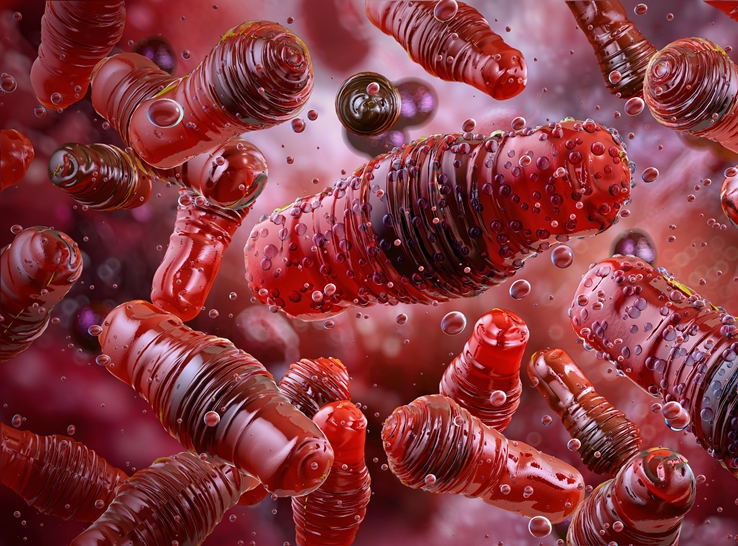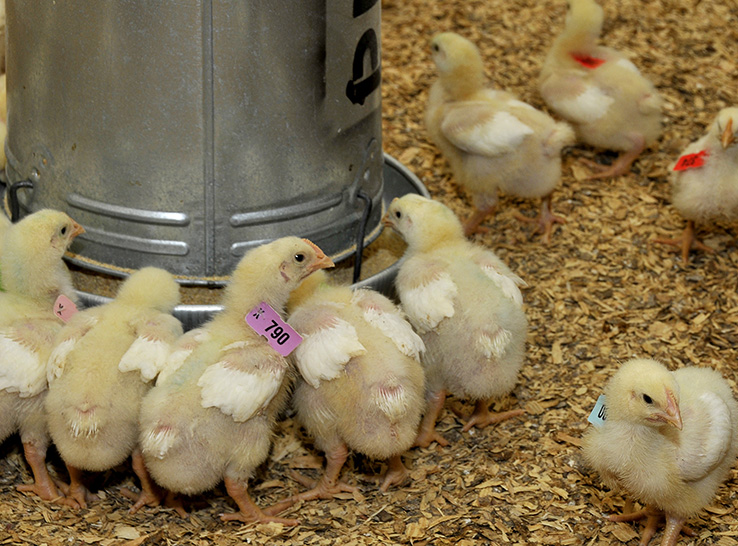A novel probiotic has been developed as a direct-fed microbial in both poultry and swine feed to improve gut health and weight-gain efficiency, according to the University of Arkansas.
Additionally, feed cost savings may be realized through greater utilization of soybean meal in diets.
The probiotic, which is a beneficial bacterium, is made from a Bacillus-strain isolated by poultry science researchers with the Arkansas Agricultural Experiment Station and is being co-developed by Kent Nutrition Group.
Kent licensed the patented technology from the University of Arkansas System Division of Agriculture and is currently making probiotic-infused poultry and swine feed with the Bacillus strain.
Bacillus-strain advantages
Advantages of a Bacillus-strain probiotic, compared to common probiotic microorganism of the Lactobacillus and Bifidobacterium species, include its ability to survive higher temperatures and lower pH environments.
The non-genetically modified Bacillus bacterium also eliminates the need for multiple genetically modified enzymes that are added to animal feeds to help the animal break down ingredients in protein sources such as soybean meal.
Being heat- and pH-stable improves survivability rate in the animal’s gastrointestinal tract and feed processing such as the manufacture of pelleted feed. The strain was originally found to work well in poultry diets and preliminary data suggest the probiotic may also work well in swine.
Overcoming a problem
Billy Hargis, DVM, PhD, distinguished professor of poultry science at the University of Arkansas, said experiment station studies on the Bacillus strain showed it increased the animals’ ability to digest non-starch polysaccharides in protein sources such as soybean meal.
Non-starch polysaccharides are difficult-to-digest carbohydrates found in soybean meal, which serves as the primary source of protein for both layer and broiler chickens, as well as turkeys and swine, Hargis explained.
“The problem with these non-starch polysaccharides is that they cannot be digested and utilized by the animal, but rather they feed detrimental populations of microbes within the gut, adding to intestinal inflammation and susceptibility to other causes of enteric disease,” Hargis said.
For more information, contact John Lovett, University of Arkansas.






